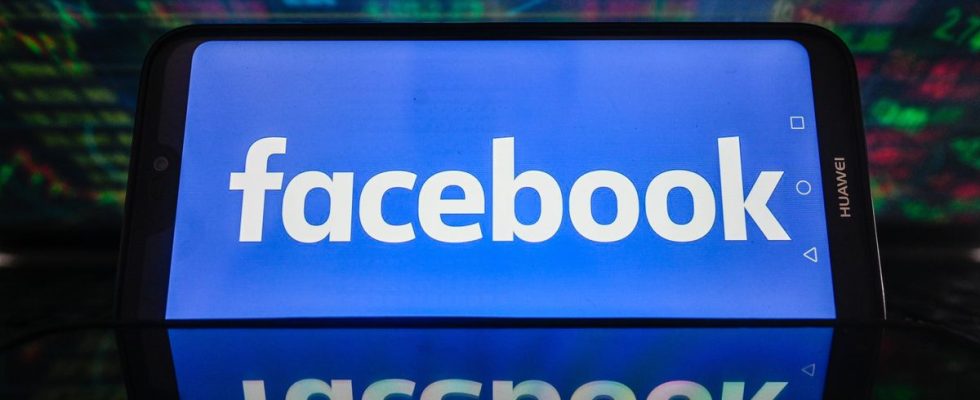If you do not share this article with 15 of your contacts, Facebook will become charged! And this time, Mark Zuckerberg might just be serious. Nothing to do with our audiences, let’s be honest. But social networks, including those of the Meta group (Facebook and Instagram), have until March 6, 2024 to comply with the European regulation on digital markets (DMA). And this opens the door wide to the possibility of charging to block the collection of your personal data.
Meta could thus offer a service at 10 euros per month for a Facebook or Instagram account free of advertising on computer, 13 euros for mobile. And too bad for the promise of “always free” Facebook, dear to Mark Zuckerberg. The end of the open access Web era? “The free Web is a myth,” responds bluntly Karine Berthelot-Guiet, professor of information and communication sciences at Celsa-Sorbone University. It’s true, to surf the virtual Web, you must first buy a computer or smartphone and pay a package. Or, at a minimum, pay a few euros in an internet café. “Even when you are promised free wifi, often it is because you eat in a fast food restaurant for example,” says the academic.
The myth of the free web
But if paying has always been the condition for accessing the Web, why are we so attached to seeing it as a free space? This notion was present from the start in the minds of its founders, confided Tim Berners-Lee a few years ago in the columns of Guardian : “I imagined the Web as an open platform that would allow everyone, everywhere to share information, access opportunities, and collaborate across geographic and cultural boundaries. »
“There was a libertarian side, it was an army system taken up by academics, with an idea of free speech,” adds Karine Berthelot-Guiet. The idea was strengthened when the first media to arrive on the Internet “did not choose a paid system”. From then on, “people were used to a free system with ads”, in which “we accepted cookies without knowing it”.
The situation changed in 2016, with the data protection rule. Some months later, Tim Berners-Lee wrote “we have lost control of our personal data”, in a text on “three things we must change to save the Web”. The GDPR made it possible to more clearly choose to refuse this collection, but free collection became untenable.
Advertising or subscription, paid strategies
Without targeted advertising, revenue for some sites fell. And the media quickly put up a barrier to entry, leaving the choice between accepting cookies or paying a subscription. “For two years, people have understood that it is not so free,” estimates Karine Berthelot-Guiet, who notes that generally, “we pay for the paper media, otherwise we know that it is advertising that finances this model. of pseudo-free is quite well known. » Paying to surf is “the brutal highlighting of something that we knew intuitively”, according to her. “People are prepared, social networks were the last bastion”, and the DMA is in some ways the logical evolution of the GDPR.
Twitter, now X, has already implemented a paid plan, in exchange for “less advertising”. “TF1 has an ad-free replay offer,” quotes the academic, while in the United States, Netflix conversely offers to pay less for pages of adverts between two episodes of Sex Education. There remains the risk of losing users with a paid platform. “It’s a creative destruction, there is a strategic choice to make” for the platform, she defends. On the user side, “will the added value of the social network be sufficient” to agree to pay?
Of the fake news to future news
“Today, most people find information on the web through a handful of social networking sites” that “make more money when we click,” criticized Tim Berners-Lee in 2017. TikTok, Google, Instagram “ choose what they want to show us based on algorithms that learn from our personal data.” This picture is evolving, and “Facebook is changing,” notes Karine Berthelot-Guiet. Deserted by young people and “brands”, the father of social networks is “languid”, even brain dead. Citadels of freedom of expression but also dens of disinformation and fake newsparticularly during the American presidential elections, “social networks now think of themselves as media”, “with curation and an editorial line”, analyzes the university professor, also “the financing model comes with it”.
Furthermore, the data collected in exchange for free access carried a threat, according to Tim Berners-Lee. “By working with corporations, governments are also increasingly monitoring our every move online,” putting bloggers and whistleblowers in authoritarian countries at risk. In short, making social networks pay could have a virtue: what would harassers and malicious Internet users do there, when their means of payment could even more clearly allow them to be identified?

